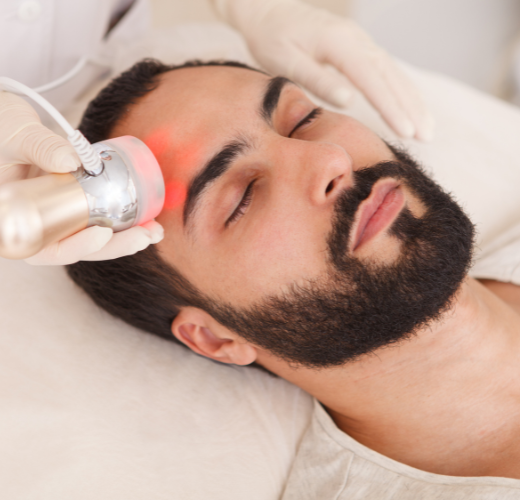9 tips to maintaining a healthy skin microbiome

Have you ever heard of the term "skin microbiome"? This refers to the community of microorganisms that live on your skin, including bacteria, fungi, and viruses. You might be thinking, "Why is it important to even know about this?" Well, let us tell you that maintaining a healthy skin microbiome can have a significant impact on your skin's overall health and appearance.
A healthy skin microbiome plays a crucial role in protecting our skin from harmful pathogens and environmental stressors like pollution and UV rays. Additionally, it can help boost our skin's natural barrier function, keeping it hydrated, plump, and youthful-looking.
Here are some tips to help you avoid harming your skin microbiome while taking a shower:
1. Use Mild Cleansers
Opt for gentle, pH-balanced cleansers that are free from harsh chemicals and fragrances. Harsh cleansers can disrupt the natural balance of your skin's microbiome.
2. Avoid Hot Water
Hot water can strip your skin of its natural oils and disrupt the skin's barrier function. Use lukewarm water instead, as it is gentler on your skin.
3.Shorter Showers
Prolonged exposure to water can weaken the skin's barrier and affect the microbiome. Try to keep your showers shorter to minimize this impact.
Pat Dry: After your shower, avoid rubbing your skin vigorously with a towel. Instead, gently pat your skin dry to avoid disrupting the delicate balance of your skin's microbiome.
4. Limit Antibacterial Products
While it's important to maintain cleanliness, excessive use of antibacterial soaps and body washes can disrupt the skin's natural microbial balance. Consider using milder products.
5. Moisturize
Applying a suitable moisturizer after showering helps to lock in moisture and support the skin's barrier function, which in turn can help maintain a healthy microbiome.
6. Choose Natural Fiber Towels
Opt for soft, natural fiber towels instead of rough or synthetic ones, as they can be less abrasive on your skin.
7. Limit Exfoliation
While exfoliating can be beneficial, excessive or aggressive exfoliation can disturb the skin's microbiome. Use gentle exfoliants sparingly.
Avoid Over-scrubbing: Be gentle when washing your skin. Avoid scrubbing too hard, especially on sensitive areas.
8. Hydrate
Stay hydrated by drinking enough water. Adequate hydration supports healthy skin and its microbiome.
9. Mind Your Diet
A balanced diet rich in fruits, vegetables, and probiotic-rich foods can also contribute to a healthy skin microbiome.
When to Consult a Dermatologist
If you have specific concerns about your skin's health or microbiome, it's a good idea to consult a dermatologist. They can provide personalized advice based on your skin type and concerns.
Remember that everyone's skin is different, so it might take some experimentation to find the right routine and products that work best for you while preserving your skin's microbiome.


